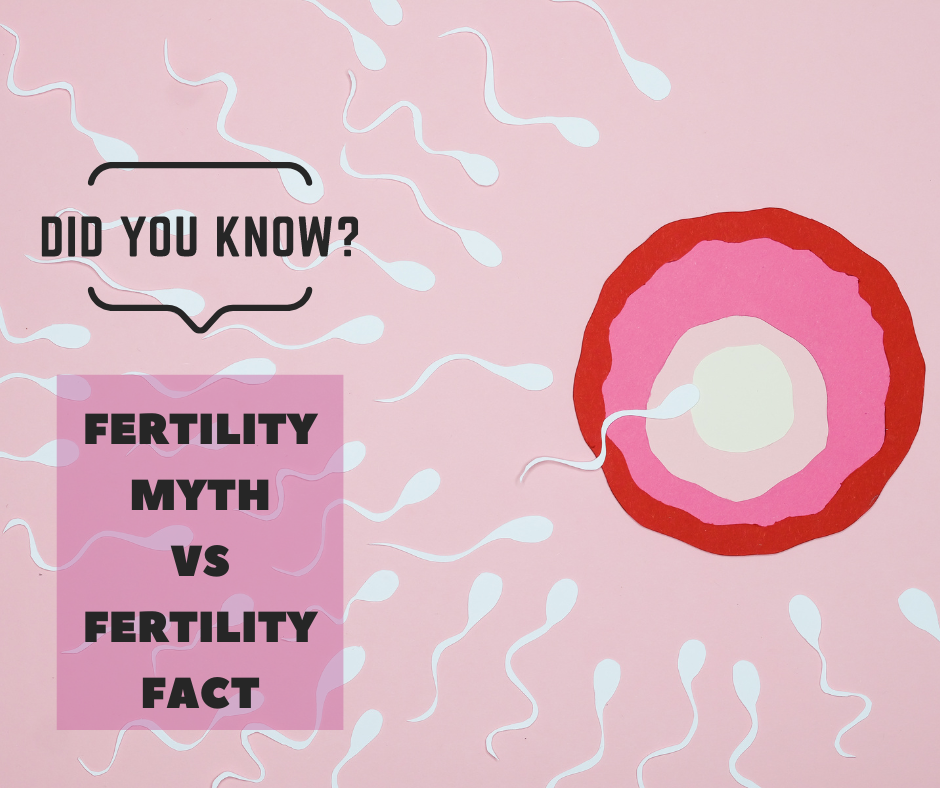
Why are there so many fertility myths about IVF and the various treatments that clinics provide? I think it’s because we live in an age of misinformation but it’s also because gossip seems much juicier than facts. It also spreads faster on the Internet. Here, in the beautiful Caribbean there are a mass of fertility myths telling you how to get pregnant and old wives tales on how to conceive.
In this article, I want to kick 14 fertility myths to the curb. But before I do that, I want to share a story, and take you for a ride around a beautiful Caribbean island I now call my home.
When I moved to Trinidad and Tobago from England 19 years ago there was something special about T&T that I fell in love with. For one thing, people are always ready to help. I say this from personal experience following two car breakdowns in one year.
The first car broke down on me in London. I was an exhausted eight-month pregnant doctor driving home from a busy night shift on the labour ward. My car’s fan belt broke. My car ground to a halt on a busy roundabout in London, leaving me stranded. Even though I was obviously pregnant and standing next to my car clearly in need of help, it was 10 minutes before a car would stop to help me!
Fast forward one year, newly arrived in Trinidad and another car decided to malfunction and leave me stranded in the middle of the busy Morvant junction. This time I didn’t even have time to get out of my car to push — six men were already moving my car and giving me advice on what to do! And I wasn’t even pregnant this time!
Fertility Myths Versus Fertility Facts
Trinidad and Tobago (and the Caribbean) are the same when it comes to infertility — totally, wonderfully, unique!
When you are struggling to have a baby, everyone and their auntie in T&T has some advice for you. Some of this fertility advice is helpful, but most of these old wives tales on how to get pregnant are just plain wrong (let me hasten to say that every country in the world has their just-plain-wrong fertility myths!).
These fertility traditions have been passed around so often, and repeated so much, that it is difficult for anyone to differentiate fertility myths from fertility facts.
Let’s Bust Some Fertility Myths!
Let me take you on an entertaining journey through the top 14 fertility myths I hear in the Caribbean. Along the way, I’ll enlighten you with the real fertility facts.
Myth #1. Use Gravity to Keep Sperm in your Vagina after Sex to Increase Fertility
What does this fertility myth actually mean? That you need to use cushions to raise your bottom high in the air after sex! This way the sperm that your partner has just left in your vagina cannot run out. Is this really likely to increase your chances of pregnancy naturally? Are you are really more likely to get pregnant if you do a handstand after sex?
This is one fertility myth that’s easy to bust! It’s just not true!
It is actually normal for excess semen (the fluid that has the sperm) to run out of the vagina after sex. You do not lose good sperm this way. The fluid that comes out when a man has an orgasm (the ejaculate) varies from man to man. Usually there is around 1 teaspoon of fluid when a guy ejaculates. This fluid coats the walls of the vagina. The millions of good sperm in this ejaculate swim and find their way into the neck of the womb. Gravity does not upset them or make them fall the wrong way.
Once the sperm are up at the top of the vagina and have found the neck of the womb, they take a well deserved rest. After a while they will then continue their difficult journey into the womb. They look for the fallopian tubes at the top of the womb and from here they start actively looking for an egg. They do not “fall out” of the vagina with gravity.
This is why sexual positions, who is on top during sex, and lying down after sex, don’t make any difference to pregnancy rates. You are just as likely to get pregnant having sex standing up as you are if you have sex lying down.
Myth #2. “It Must Be My Fault”
I hear this a lot from women and it’s one of the big fertility myths. Many family and friends will also assume that it is the woman’s “fault” when a couple has infertility. Strangely, men rarely blame themselves. Well, guess what? This is another myth that we can bust!
The fact is that the causes of infertility vary around the world.
In the UK studies have shown that the cause of infertility is fairly evenly split between male causes (30%), female causes (30%). For the remaining couples, the causes are combined male and female factors (10%) and then unexplained and other causes (30%).
Fertility is Not a Female-Only Problem!
Here in T&T it’s different. One study has suggested that male issues are the top cause of infertility in this country. Think about that: it means infertility is more likely to originate with the man than the woman, the exact opposite of what this myth says!
We also know that in more than half of the couples in T&T, more than one thing is causing their infertility. This fact is vital. It means that both the man and the woman must be properly assessed to find the causes of infertility.
So often, when couples do not go to a fertility clinic, only the woman will be tested. If the doctor finds something causing infertility for her, the man does not even get looked at, let alone given a sperm test. These mistakes often mean the wrong treatment is used.
The result is wasted time and money, which is not only frustrating, but for many couples, it can reduce success rates. So remember this fertility fact: In many couples infertility is actually found in both partners!
Myth #3. Don’t Worry about Getting Older
Nope, totally incorrect! This one is a huge, absolutely wrong, myth amongst all the fertility myths out there! AND this goes for both men and women. The biological clock is ticking for everyone!!
IVF is not a guarantee and age really does affect the treatment’s success. Also when you wait too long, you may be missing out on other effective treatments. The rule of thumb is this: If you’re under 35, get to a fertility clinic if you’ve been trying without getting a baby for a year. If you’re over 35 you should head for the clinic after six months. Simple!
We see so many couples who have been trying for more than 10 years, seeing doctors who do not specialise in fertility. It is sad that Trinbagonians believe the fertility clinic is your last stop! Get ahead of everyone else and do yourself a favour – if fertility is your concern, then you should be in the fertility clinic right from the start.
Myth #4. “I Eat Healthily and Do Yoga, and I Don’t Look 38, so My Eggs Must be Great”
Unfortunately, eggs don’t work that way. There’s not a lot you can do to affect the state of your eggs. In your 20s and early 30s, unless you have an unusual egg problem, one in every four eggs can make a baby. By the time you are 40 that’s plummeted to one in every 12 eggs, and by 45 only one in every 100 eggs is likely to make you a baby, meaning that most women are naturally infertile when they hit their 40s.
Myth #5. Birth Control Pills Make You Less Fertile
Absolutely not true! Birth control pills do not damage your eggs or lower your egg numbers. This is one of the fertility myths that is just way too common, so I want to bust it once and for all.
The pill actually give your ovaries a healthy rest; they don’t grow and ovulate eggs every month. You can safely use birth control for many years, in fact five years or more on birth control halves your lifetime risk of both womb and ovarian cancer.
There is also no post-pill infertility. Once you stop birth control pills (or even miss a couple of pills) your body goes back to its natural state. This natural state might be nice and fertile. An egg can start growing and get you pregnant quickly, even with just a few missed pills.
However, this natural state might also be infertile. For example, if your tubes were blocked when you went on the pill, they will still be blocked when you stop the pill. You won’t get pregnant because of the blocked tubes, but it is nothing to do with using the pill!
Myth #6. Multiple Rounds of IVF Will Not Increase Your Chances of Getting Pregnant
Not true! If IVF does not work the first time, there is still a good chance it may work the second or third time. But keep in mind, this does depend on the woman’s age.
Myth #7. Rubbing the Womb Helps with Fertility
This is a unique Caribbean myth. I had never heard of this in the UK and was very interested to hear it when I arrived in T&T.
The truth is that while massage can help with stress and muscular complaints there is (sadly!) zero evidence from clinical trials that it helps fertility in any way.
Myth #8. The Phase of the Moon Affects Fertility
Yep, another of those fertility myths. No science behind this one either. The fertility fact here is that menstrual cycles and egg release show no correlation with the phases of the moon.
Myth #9. Complementary and Alternative Medicines can Stimulate Fertility
Alternative medicines (“herbs”) are very popular throughout the Caribbean and are even used by doctors. However, when it comes to infertility, there is no scientific evidence that they help in any way.
In fact, here in T&T herbal tonics are widely sold and make some really outrageous and outright false claims. Logic tells you that if something claims to cure all ills, including cancer, infertility and diabetes, then the maker is just about to win the Nobel Prize for medicine or else is a complete fraudster. I leave you to make up your own mind on this obvious fertility myth.
Myth #10. A Poultice of Lamp Oil and Garlic Removes Mucus from the Womb to Get You Pregnant
Another unusual Caribbean fertility myth, but this one is not nice and not helpful! Why? Because there is no infertility condition where mucus gets into the womb! I have to admit that I didn’t know what a “poultice” was the first time I heard this and had to ask Wikipedia! A “poultice” is a soft moist mass, often heated and medicated, that is spread on cloth and placed over the skin to treat part of the body.
However, you do need mucus in the cervix (the neck of the womb), where it has the vital job of nourishing and protecting sperm and preventing infection.
Putting a poultice onto your abdomen is useless, but harmless. But (and this is a big but!) putting a poultice into your vagina is likely to cause imbalances in the delicate natural protection the vagina has working for you. These imbalances can cause infections and bacterial vaginosis (a nasty fishy-smelling grey discharge). So stay clear of this fertility myth.
Myth#11. Vaginal Steam Fights Fibroids and Improves Uterine Blood Flow to Improve Fertility
Nope. Useless, but unlikely to do any damage unless you burn your skin with the steam!
Myth #12. A Low Womb or Prolapse Causes Infertility
Not true! A low womb results from a weakening in the pelvic floor muscles that keeps the womb high in the vagina. In rare cases, some women are born with an absence of these muscles and have a womb that actually lies outside the vagina. They have normal fertility.
However, a low womb gets more likely as a woman ages, and with age comes a drop in egg quality. So, when you are 45 years old, it is your age, not your low womb that’s causing your fertility issues.
Myth #13. Fertility teas help increase egg numbers and egg quality.
This is very much part of our Caribbean culture, and regrettably, also not true. As a fertility doctor, I pray for the day when we find a way to improve egg numbers and egg quality. But the truth is, 99.9% of a woman’s eggs are in a protected sleep-like state and therefore cannot be affected by anything in her diet, including hormones, vitamins, teas or tonics. Nature has designed a woman so that most of these eggs die as she gets older so that by the age of 45 you have almost no eggs left. Nothing has ever been found to stop this process of egg death.
Myth #14. Yoni Eggs After Sex Keep Sperm In
Oh no, no, no! For those of you who don’t know “yoni” is a cute term for your vagina. Well, it seems we have some kooky and poorly educated celebrities to thank for this piece of useless advice. It’s one of the biggest fertility myths by the Hollywood bunch. So, if you were conned into buying some vaginal eggs to aid fertility, here is the fact: This doesn’t work.
 This article was written by me, Dr Catherine Minto-Bain, OBGYN and Specialist Fertility Doctor for men and women. Ask me your fertility questions and tell me your fertility myths, to make my future blogs even better!
This article was written by me, Dr Catherine Minto-Bain, OBGYN and Specialist Fertility Doctor for men and women. Ask me your fertility questions and tell me your fertility myths, to make my future blogs even better!

